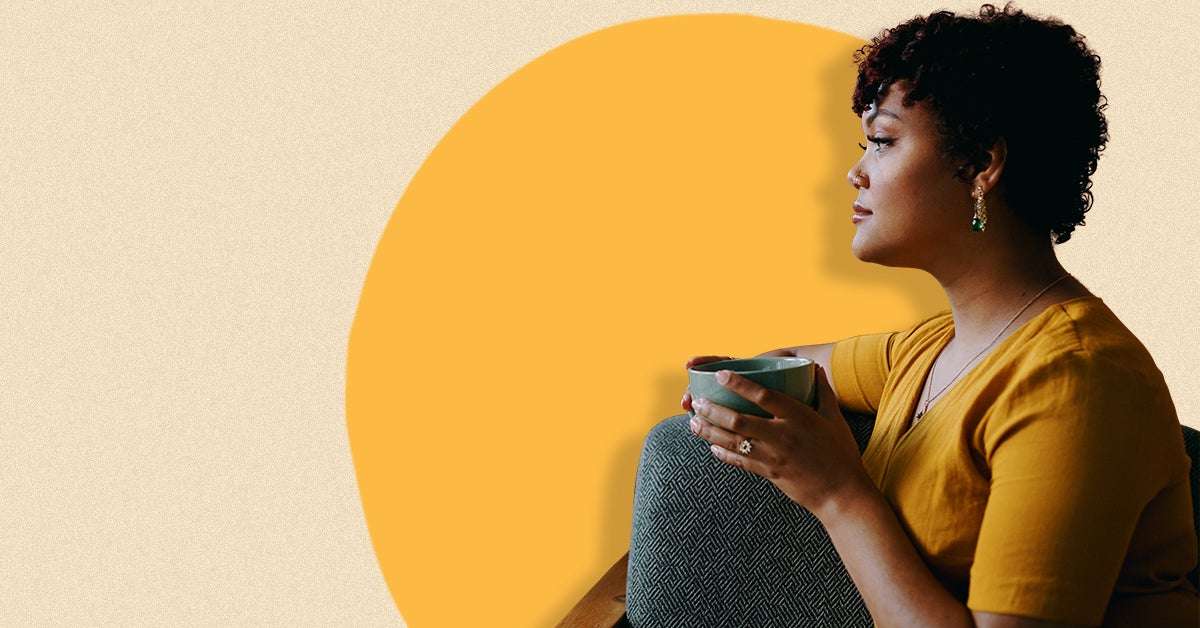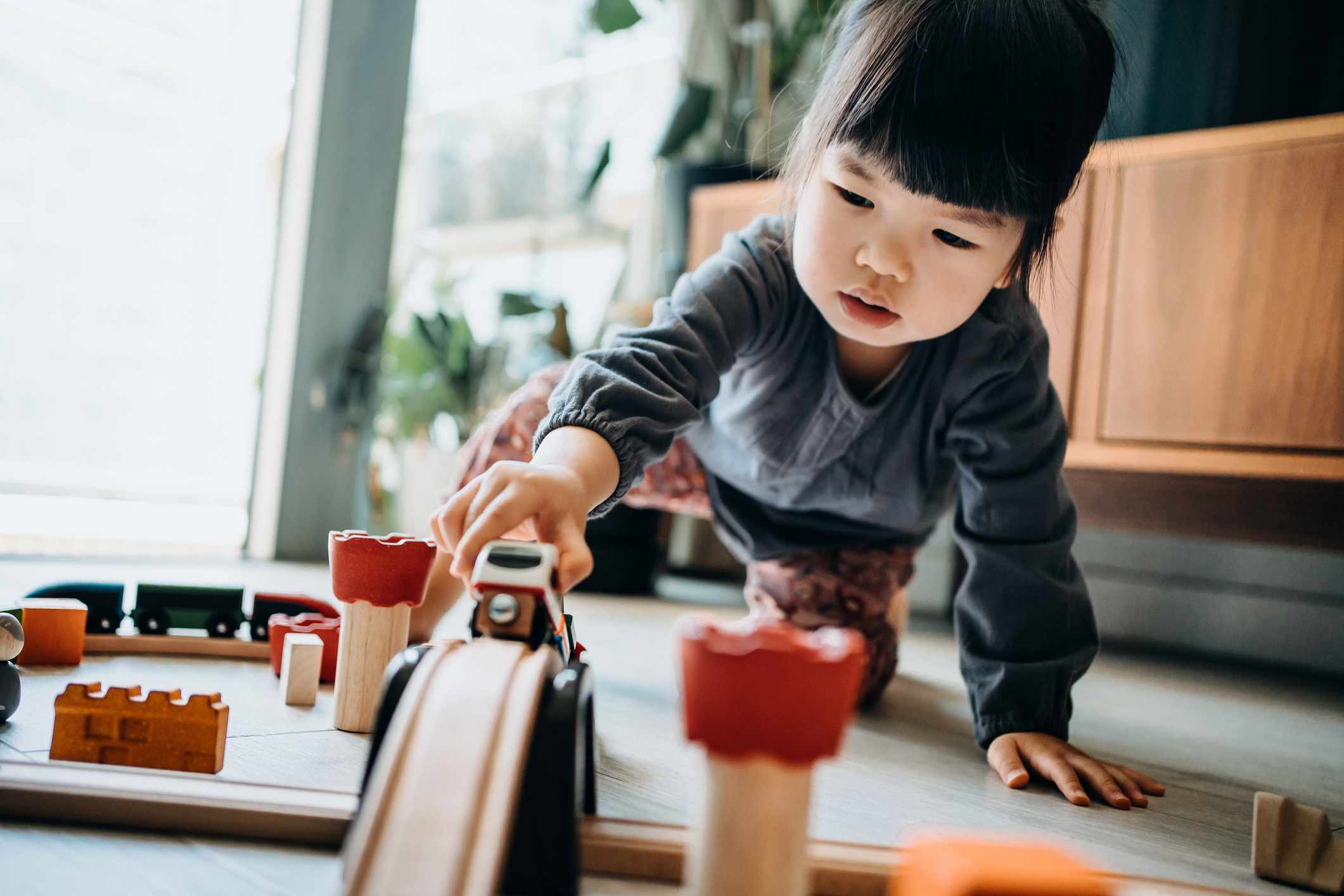Tea can be a great way to introduce a little moment of zen into your daily routine. With everything from classic chamomile to meditative matcha, our teas are a perfect fit to soothe the nerves and promote relaxation and well-being. Teas for anxiety include mint teas, chamomile teas, lavender teas, rose teas, and matcha.

Top Stress-Relief Teas
Shop Our Stress-Relief Collection >>>
1. Mint Teas
Mint teas are full of relaxing effects, helping to soothe the body and calm the mind. Our Lemon Mint Menage is a smooth organic black tea blend with bright minty notes and the refreshing taste of lemongrass, making it a perfect option for a soothing, uplifting morning cup. Moroccan Mint, a blend of the finest Chinese gunpowder tea and exceptional quality spearmint, is another perennial favorite.
Looking for a mint tea without the caffeine? Peppermint makes a calm, soothing herbal tea, perfect for unwinding in the evening. Our Lavender Mint tea blends two aromatic and soothing herbs for a fresh, lightly floral cup that tastes great hot and makes a superb iced tea. Sing Your Song, famed for its throat-soothing properties, blends peppermint, organic lemongrass, organic cardamom pods, organic dried ginger pieces, and organic licorice root for a mint tea with a touch of sweetness and spice. And Alice’s Peppermint Party, one of our most popular herbals, blends peppermint and ginger with apples, almonds, hibiscus, and rose for a soothing, mint-forward cup.
2. Chamomile Teas
Chamomile is well-known for its relaxing properties, and makes a soothing, aromatic cup of tea perfect for any time of day. Our Egyptian Chamomile is made with the highest quality chamomile available, and the large, fragrant flower heads make for a sweet and floral cup that’s perfect for soothing the body and mind. For an extra treat, enjoy it with a dollop of honey! Our Lavender Lullaby, meanwhile, blends chamomile with lavender, rose petals, sweet orange peel, and calendula petals in a handcrafted organic herbal infusion that helps to soothe away the day and promote more peaceful rest.
3. Lavender Teas
Lavender is another herb that has been shown to relieve stress and promote relaxation, making it a soothing addition to many of our teas and herbal infusions. Earl Grey Lavender blends black tea, oil of bergamot, and Provence lavender for a floral cup with a touch of spice, perfect for an afternoon tea.
ArtfulTea also carries a wide variety of herbal blends containing lavender. Lavender Mint is an herbal powerhouse, blending lavender and mint, both famed for their relaxing, soothing properties. And Lavender Lullaby is a custom blend full of lavender, chamomile, rose petals, sweet orange peel, and calendula petals that has been specially crafted to promote rest and relaxation. A light, floral blend reminiscent of a sunny meadow in Tuscany, Tuscan Sun blends lavender, apple pieces, linden blossoms, lemon balm, rose petals, blackberry leaves, orange blossoms, and blue mallow blossoms for a soothing, restorative cup.
4. Rose Teas
Used for centuries in everything from rose water to essential oils, rose petals have been shown to have a potent relaxing effect. Midnight Rose is a mellow blend of quality Chinese black and organic rose petals for an aromatic, flavorful cup with a sweet, floral character.
Looking for an herbal tea with roses? Rose Petal Raspberry blends rose petals, hibiscus, lemon peel, rose hips, and apple pieces for a sweet, tart tea that’s perfect to unwind with at the end of the day. Lavender Lullaby is a truly relaxing blend, mixing rose petals with chamomile, lavender, and other herbs well-known for their ability to calm and soothe. Our Tuscan Sun blends rose petals as well as lavender, apple pieces, linden blossoms, lemon balm, blackberry leaves, orange blossoms, and blue mallow blossoms for a calming floral cup of tea. Green Rooibos with Blossom, meanwhile, blends South African green rooibos and rose petals, sunflower petals, freeze-dried blueberries, and cornflower petals for a mild, slightly sweet tea full of relaxing properties.
5. Matcha
Most teas made from the camellia sinensis plant contain some amount of L-theanine, a unique amino acid that promotes relaxation and stress relief. In particular, matcha has even higher levels of L-theanine than other teas, the result of the shaded growth period the tea undergoes before harvest. The combination of caffeine and L-theanine is known for producing a calm, meditative state and what matcha enthusiasts often refer to as a body high.
Here at ArtfulTea we carry a range of matcha products, from our highest grade ceremonial matcha, to culinary grade matcha for use in lattes, smoothies, and baked goods, and even matcha that you can take with you on the go!
Shop Calming Teas >>>
FAQs
Is green tea good for anxiety?
Green tea can help soothe anxiety thanks to the presence of l-theanine, which can increase feelings of calm and relaxation. Green tea does contain caffeine, so it’s best to enjoy it in moderation.
Does chamomile tea help with anxiety?
Chamomile tea is a good way to help soothe symptoms of anxiety. A cup of chamomile tea can help you to relax and unwind.
How much l-theanine is in green tea?
Green teas contain an average of 6.56 milligrams of l-theanine per gram of tea. However, the l-theanine content present in green tea can vary significantly between different teas, with shade grown green teas containing substantially more l-theanine.
Read more:

Share on Pinterest
We include products we think are useful for our readers. If you buy through links on this page, we may earn a small commission. Here’s our process.
Healthline only shows you brands and products that we stand behind.
Our team thoroughly researches and evaluates the recommendations we make on our site. To establish that the product manufacturers addressed safety and efficacy standards, we:
- Evaluate ingredients and composition: Do they have the potential to cause harm?
- Fact-check all health claims: Do they align with the current body of scientific evidence?
- Assess the brand: Does it operate with integrity and adhere to industry best practices?
We do the research so you can find trusted products for your health and wellness.
Read more about our vetting process.
Herbal teas have been used for centuries, both for their health benefits and for pleasure. Some people claim that certain herbal teas have properties that can help reduce symptoms of stress, anxiety, and other mental health concerns.
It’s important to remember that what works for one person may not work for you. Finding the right herbal tea or herbal tea blend can take time.
Although herbal teas are technically different from supplementary capsules, oils, tinctures, and other medications you might use to manage anxiety, interactions are still possible. Always talk with a doctor or other healthcare professional before adding herbal tea to your routine.
Benefits of tea
Some herbal teas may help take the edge off occasional stress and anxiety, while others may be better used as a routine complementary therapy for an underlying condition.
Other potential benefits of drinking various herbal teas can include:
- improving sleep and insomnia conditions
- soothing upset stomach and digestive issues
- improving menstrual cramps
- improving nausea and morning sickness
- improving blood pressure levels
Read on to learn which teas may help soothe and support your overall sense of well-being.
Peppermint (Mentha piperita)

This classic garden plant can be used for more than just seasoning. Some research suggests that the aroma may reduce feelings of frustration, anxiety, and fatigue.
Separate research finds that inhaling the scent of peppermint oil may help soothe anxiety in people who were hospitalized for heart attack and childbirth.
- Best used for: Peppermint tea is helpful for combating stress-inducing feelings such as anxiety. Peppermint tea may also be helpful if you’re feeling fatigued.
Shop now at Amazon
Chamomile (Matricaria chamomilla/Chamaemelum nobile)

This daisy-like flower is synonymous with calm, making it among the most well-known stress-soothing teas.
One 2016 study found that long-term use of chamomile extract significantly reduced moderate to severe symptoms of generalized anxiety disorder (GAD). However, it didn’t prevent future symptoms from occurring.
- Best used for: Along with the relaxing and sedative properties of chamomile, it can also be used to help with upset stomach as well as easing pain and inflammation.
Shop now at Amazon
Lavender (Lavandula officinalis)

Lavender is widely known for its mood-stabilizing and sedative effects. But did you know that it might be as effective as some medications at relieving anxiety?
Researchers in one 2010 study found that silexan, an oral lavender capsule preparation, was as effective as lorazepam in adults with GAD.
- Best used for: Lavender can be beneficial for lowering anxiety and helping heal skin care conditions like acne and burns as well as aches and pains in the body.
Shop now at Amazon
Valerian (Valeriana officinalis)
Valerian root is commonly used as an herbal remedy for insomnia and other sleep disorders. It may help relieve anxiety-related sleeplessness, but research has been mixed.
One 2015 study found that valerian extract reduced anxiety in women undergoing a medical procedure.
- Best used for: Valerian may help improve insomnia and other health issues such as headaches and heart palpitations.
Shop now on Amazon
Gotu kola (Centella asiatica)
Gotu kola is used as a traditional medicine and tonic in many Asian cultures. It’s often used to ease feelings of fatigue, anxiety, and depression.
One 2012 study on mice found that gotu kola extract may be an effective treatment for acute and chronic anxiety. However, more research is needed to fully understand its effects.
- Best used for: Gotu kola may help relieve anxiety, depression, stress, insomnia, and might even help ease symptoms of Alzheimer’s disease.
Shop now at Amazon
Passionflower (Passiflora incarnata)
Passionflower has long been used to improve sleep quality. It may also help ease symptoms of anxiety.
Researchers in one 2017 study found that a passionflower supplement worked as well as a mainstream medication for reducing anxiety in people having dental work.
- Best used for: Passionflower may help improve insomnia and anxiety, and has been linked to improving other health issues such as stomach problems.
Shop now at Amazon
Green tea (Camellia sinensis)
Green tea is high in L-theanine, an amino acid that might reduce anxiety.
One 2017 study found that students who drank green tea experienced consistently lower levels of stress than students in the placebo group.
Green tea is also known to help improve focus, since the combined L-theanine and caffeine in the drink help with this, according to a 2010 study.
- Best used for: Green tea may help lower anxiety and stress in people who regularly drink it.
Shop now at Amazon
Ashwagandha (Withania somnifera)
Ashwagandha is an Ayurvedic herb said to help combat stress and fatigue.
One 2012 study found that taking the root extract significantly reduced stress levels over a 2-month span.
A 2014 review of studies also concluded that Ashwagandha extract helped alleviate feelings of stress and anxiety, but more research is needed to confirm these effects.
- Best used for: Ashwagandha is an adaptogenic herb that may help manage anxiety. It’s also known for having anti-inflammatory, anti-stress, and antioxidant properties.
Shop now at Amazon
Holy basil (Ocimum sanctum)
Also called tulsi, holy basil is related to European and Thai basils.
Research on its effects on anxiety or stress are limited. One 2008 study found that taking a holy basil extract decreased symptoms of GAD.
- Best used for: Holy basil may be used for both physical and mental benefits, including anxiety, stomach pain, cough, and arthritis pain. However, studies on how effective holy basil is are limited.
Shop now at Amazon
Fennel (Foeniculum vulgare)
Fennel is a tall herb that sprouts yellow flowers. It’s native to the Mediterranean.
Fennel tea has traditionally been used to calm anxiety.
Although more research is needed, one 2018 study did find that fennel had anti-anxiety and antidepressant effects in postmenopausal people.
- Best used for: Fennel is best used for digestive problems, which are common anxiety symptoms. It may also help relieve menstrual irregularities and coughing, and can be used as a diuretic.
Shop now at Amazon
Hops (Humulus lupulus)
You can taste bitter hops in certain beverages, but hops are nothing to be bitter about.
A 2017 study found that taking a hops supplement can reduce mild symptoms of depression, anxiety, and stress.
And when combined with valerian, hops supplements may also improve sleep quality.
- Best used for: Hops is best used for treating some mental health concerns such as depression, anxiety, and stress, and it can also be used for sleep.
Shop now at Amazon
Licorice (Glycyrrhiza glabra)
A popular herbal ingredient in colds and flu teas, licorice root has also become a widespread sweetener and candy.
People also take licorice to reduce stress and fatigue, but research is limited.
One 2011 study on mice suggests that licorice extract may reduce stress.
Researchers in a 2013 study on mice found that licorice extract can increase the anti-anxiety effects of valerian and anxiety medications.
- Best used for: Though research is very limited, licorice may be helpful for reducing stress and anxiety.
Shop now at Amazon
Catnip (Nepeta cataria)
Although catnip is a stimulant for cats, it can be used to create a soothing drink for humans.
Catnip has been traditionally used to relieve anxiety. It contains compounds similar to those found in valerian, but it’s unclear whether they offer the same benefits.
- Best used for: Catnip contains nepetalactone, which is similar to the valepotriates found in valerian. These compounds may help ease anxiety and help with sleeping troubles as well.
Shop now at Amazon
A comparison of the best teas for anxiety
TeaCaffeine-free?Best forpeppermintyesstress-relief, fatiguechamomileyesrelaxation, stomach upsetlavenderyesanxiety-reliefvalerianyesinsomniagotu kolayesanxiety-relief, insomnialemon balmyesinsomnia, depression, anxietypassionfloweryesinsomnia, anxietygreen teanoanxiety, stressashwagandhayesanxiety, combatting inflammationholy basilyesanxiety, stomach issues, joint painfennelyesdigestion issues, period crampinghopsnodepression, anxiety, insomnia, stresslicoriceyesstress, anxietycatnipyesanxiety, sleep issuesSt. John’s wortyesstress, anxiety, depressionTraditional Medicinals Cup of Calmyessleep, anxietyThe Republic of Tea Get Relaxedyesanxiety, stressYogi Stress Reliefyesanxiety, sleepNumi Organic Bamboonoanxiety, relaxationLipton Stress Therapyyesstress-relief
When to talk with a doctor
If your anxiety is so bad that it’s interfering with day-to-day activities, it may be a good idea to consult a doctor.
Not sure whether that describes your situation? Here are some signs to watch for:
- You’re constantly worrying about things.
- You have physical symptoms like a racing heartbeat.
- You can’t seem to relax.
- You avoid things because they make you anxious.
- You feel a weight on your shoulders or always feel on edge.
Frequently asked questions
Can I get tea for anxiety at a coffee shop?
Yes. Many coffee shops that also offer tea will have several of these teas on hand. For example, herbal selections like chamomile are very common and readily available.
How does tea help with anxiety and sleep?
While certain ingredients may help as described above, the simple ritual of taking a moment to sip and drink tea may contribute to stress relief.
Is tea better than coffee for anxiety?
Because coffee contains caffeine, it may not work as well as caffeine-free teas for promoting relaxation and calm. Even compared with caffeinated tea, coffee has much higher caffeine levels, which can cause jitters and make it hard to fall asleep.
Bottom line
Although some herbal teas may have a calming effect, more research is needed to fully assess their potential benefits. Herbal teas or supplements should never be used in place of a prescribed treatment.
Some herbal teas can cause uncomfortable side effects, especially when consumed in large amounts. Others can result in dangerous interactions with over-the-counter and prescription medication. Many herbal teas aren’t safe to drink during pregnancy or breastfeeding.
You should always check with a doctor or other healthcare professional before drinking herbal teas or taking herbal supplements.




